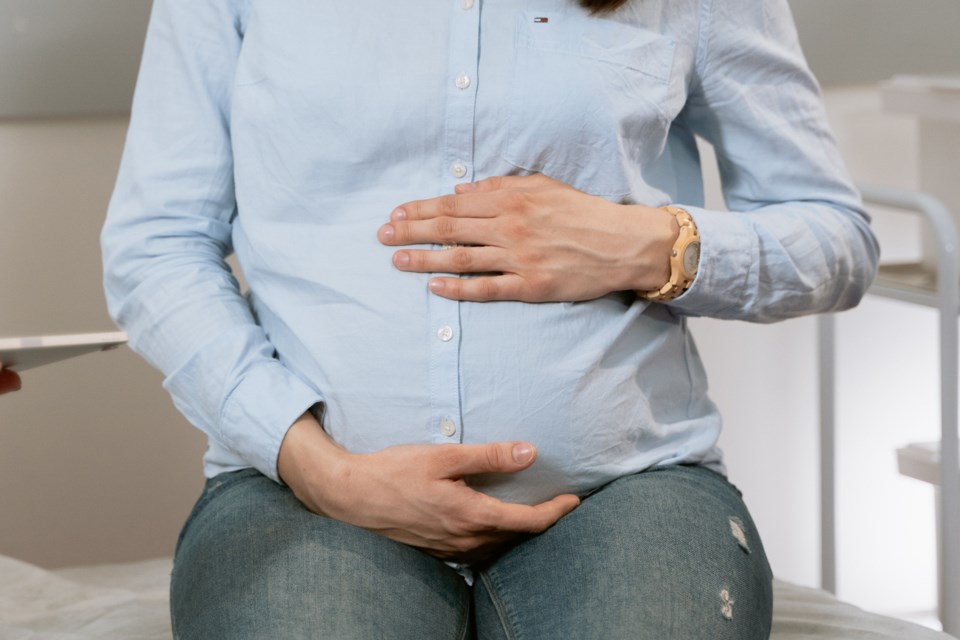A study in the Canadian Medical Association Journal (CMAJ) said the use of cannabis among pregnant women in Ontario is increasing and the medical community believes people need to be better educated on the potential harms for pregnant women.
The authors wrote that cannabis use during pregnancy is increasing, but the contribution of cannabis legalization "is unclear". The authors said they wanted to determine how cannabis use among pregnant people was impacted by the change in the law.
The study found that the rate of acute care related to cannabis use during pregnancy nearly doubled after the legalization of nonmedical cannabis in Canada.
In real terms, the study said the actual increases were small, but the "findings highlight the need to consider interventions to reduce cannabis use during pregnancy".
The study was carried out among women receiving acute care (either emergency room visit or hospital admission) between January 2015 and July 2021. The study measured the numbers on a quarterly basis.
The mean quarterly rate of acute care for cannabis use during pregnancy increased from 11.0 individuals per 100,000 pregnancies before legalization to 20.0 per 100,000 pregnancies after legalization, said the study.
Preterm Births
The study also found "pregnant people with acute care for cannabis use had greater odds of having received acute care for hyperemesis gravidarum (extreme, persistent nausea and vomiting) during their pregnancy than those without acute care for cannabis use."
Further, the study said pregnancies with acute care with cannabis use had greater odds of newborns being born preterm (16.9 per cent) and of requiring care in the neonatal intensive care unit than those without acute care for cannabis use.
After reviewing data, the authors wrote that the increase in cannabis use, or at least those reporting cannabis use, was on the rise after the change in the law in 2018. Another point in the study commented that cannabis use might also have increased from stress during the COVID-19 pandemic and various public health and lockdown restrictions that were put in place.
"Accumulating evidence suggests that cannabis use during pregnancy is associated with adverse perinatal and neonatal outcomes, including stillbirth, preterm birth and neonatal morbidity and mortality. Evidence also increasingly supports associations between cannabis use during pregnancy and neurologic and developmental disorders later in childhood, including autism spectrum disorder," the authors wrote.
They quoted information from the American Journal of Obstetrics and Gynecology and from the Journal of the American Medical Association.
In conclusion, the authors wrote: "We observed that the rate of pregnancies complicated by acute care for cannabis use almost doubled after legalization of nonmedical cannabis in Canada, although the absolute increase was small. Over the same period, pregnancies complicated by acute care for other substance use or mental health conditions remained the same or decreased.
"We observed a strong association between hyperemesis gravidarum and acute care for cannabis use. Our findings highlight the potential need for education on cannabis-related harms for pregnant people and their care providers, and for policy interventions aimed at reducing use."
The study was authored by Daniel Thomas Myran, Rhiannon Roberts, Michael Pugliese, Daniel Corsi, Mark Walker, Darine El-Chaâr, Peter Tanuseputro and Andrea Simpson; a group of physicians and scientists from the Ottawa Hospital Research Institute, the Bruyère Research Institute; Department of Obstetrics, Gynecology and Newborn Care at the Ottawa Hospital; Children’s Hospital of Eastern Ontario Research Institute; the Better Outcomes Registry and Network (BORN) Ontario; School of Epidemiology and Public Health at the University of Ottawa; Department of Obstetrics and Gynecology, Faculty of Medicine at University of Ottawa.
The full text of the CMAJ study can be found online here.
Len Gillis writes about health care issues and also covers the mining industry for Sudbury.com.
